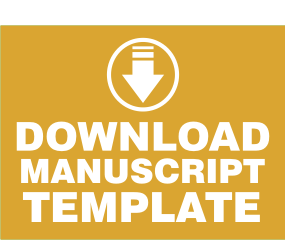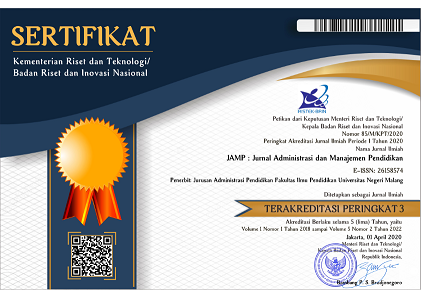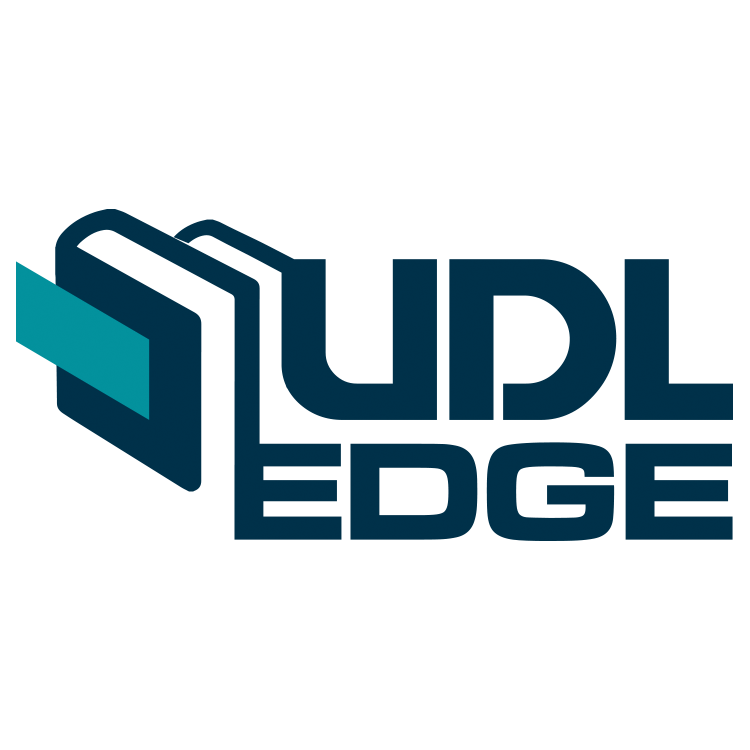STRATEGI PEMBINAAN PESERTA DIDIK DALAM RANGKA PENGUATAN PENDIDIKAN KARAKTER BERBASIS NILAI PANCASILA DI SEKOLAH DASAR
Abstract
Abstract: The purpose of this study is to describe the strategy of strengthening character education based on Pancasila values through coaching students at the Elementary School Laboratory Universitas Negeri Malang, Blitar City. The research was conducted qualitatively with a case study approach. Data obtained through unstructured interviews, observation and documentation study. Data credibility checks were carried out using triangulation techniques, random member checks and discussion with fellow researchers. The results of this study indicate that the strategy of coaching students in order to strengthen Pancasila value-based character education is divided into learning and non-learning aspects. The strategy to strengthen character education based on Pancasila values in schools is implemented in accordance with the vision and mission of the school including being adjusted to the characteristics of school learning oriented towards western education patterns by focusing on understanding and using English as the excellence of the school. Combined with eastern customs which are described in the character building activities of students.
Keywords: strategy; strengthening character education; pancasila value; elementary school laboratory.
Abstrak: Tujuan penelitian ini yakni mendeskripsikan strategi penguatan pendidikan karakter berbasis nilai pancasila melalui pembinaan peserta didik di SD Laboratorium UM Kota Blitar. Penelitian dilakukan secara kualitatif dengan pendekatan studi kasus. Data diperoleh melalui wawancara tidak terstruktur, observasi dan studi dokumentasi. Pengecekan kredibilitas data dilakukan dengan menggunakan teknik triangulasi, pengecekan anggota secara acak (random member check) dan diskusi teman sesama peneliti. Hasil penelitian ini menunjukkan strategi pembinaan peserta didik dalam rangka penguatan pendidikan karakter berbasis nilai pancasila dibagi ke dalam aspek pembelajaran dan non pembelajaran. Strategi penguatan pendidikan karakter berbasis nilai pancasila di sekolah dilaksanakan sesuai dengan visi dan misi sekolah termasuk disesuaikan dengan ciri khas pembelajaran sekolah yang berkiblat pada pola pendidikan barat dengan berfokus pada pemahaman dan penggunaan Bahasa Inggris sebagai keunggulan sekolah. Dipadukan dengan adat ketimuran yang dijabarkan dalam kegiatan pembinaan karakter peserta didik.
Kata Kunci: strategi; penguatan pendidikan karakter; berbasis pancasila; sekolah laboratorium.
Full Text:
PDFReferences
Agboola, A., & Tsai, K. C. (2012). Bring Character Education into Classroom. European Journal of Educational Research, 1(2), 163–170. https://doi.org/10.12973/eu-jer.1.2.163
Ahmad, S. D. (2018). Finding Indonesian National Leaders Based On Pancasila ‘ S Character The Member of Indonesian Parliament ( Dewan Perwakilan Rakyat Republik Indonesia ). Journal of Social Sciences and Humanities Invention, 5(09), 4969–4973. https://doi.org/10.18535/ijsshi/v5i9.02
Amini, A., Yurnita, S., & Hasnidar, H. (2017). The Development of Character Education Model Trough an Integrated Curriculum At Elementary Education Level in Medan City. International Journal on Language, Research and Education Studies, 1(2), 298–311. https://doi.org/10.30575/2017091210
Amir, S. (2013). Pancasila as Integration Philosophy of Education And National Character. International Journal of Scientific and Technology Research, 2(1), 54–57.
Arifin, I., Juharyanto, Mustiningsih, & Taufiq, A. (2018). Islamic Crash Course as a Leadership Strategy of School Principals in Strengthening School Organizational Culture. SAGE Open, 8(3), 1–10. https://doi.org/10.1177/2158244018799849
Bandur, A. (2012). School-Based Management Developments: Challenges and Impacts. Journal of Educational Administration, 50(6), 845–873. https://doi.org/10.1108/09578231211264711
Berkowitz, M. W., & Bier, M. C. (2004). Research Based Character Education. Annals of the American Academy of Political and Social Science, 591(1), 72–85. https://doi.org/10.1177/0002716203260082
Bialik, M., Bogan, M., Fadel, C., & Horvatova, M. (2015). Character Education for the 21st Century: What should students learn? Center for Curriculum Redesign.
Botha, R. J. (2010). School effectiveness: Conceptualising divergent assessment approaches. South African Journal of Education, 30(4), 605–620. https://doi.org/10.15700/saje.v30n4a391
Dennis, M., & Harrison, T. (2020). Unique Ethical Challenges for the 21st Century: Online Technology and Virtue Education. Journal of Moral Education, 1–16. https://doi.org/10.1080/03057240.2020.1781071
Diggs, C., & Akos, P. (2016). The Promise of Character Education in Middle School: A Meta-Analysis. Middle Grades Review, 2(2), 1–19.
Djiwandono, P. I. (2016). Character Education in Content Courses: Self-Scoring As a Means for Developing Honesty in Students. TEFLIN Journal, 27(2), 153–165. https://doi.org/10.15639/teflinjournal.v27i2/153-165
Fahrilyani, D., Maisyaroh, & Kusumaningrum, D. E. (2019). Manajemen Pembinaan Karakter Peserta Didik Di Sekolah Dasar. Jurnal Administrasi Dan Manajemen Pendidikan, 2(4), 204–212. https://doi.org/10.17977/um027v2i42019p204
Fajar, A. (2018). Prevention of Corruption through Anti-Corruption Education. Advances in Social Science, Education and Humanities Research, 251(Acec), 650–653. https://doi.org/https://dx.doi.org/10.2991/acec-18.2018.145
Habibu, P. S., Wondal, R., & Alhadad, B. (2020). Kajian Strategi Implementasi Pendidikan Karakter Anak Usia Dini. Jurnal Pendidikan Anak Usia Dini, 3(1), 117–127.
Hidayati, A., Zaim, M., Rukun, K., & Darmansyah. (2014). The Development of Character Education Curriculum for Elementary Student in West Sumatera. International Journal of Educational Research, 2(6), 189–198.
Imron, A. A. M., & Nugrahani, F. (2019). Strengthening Pluralism in Literature Learning for Character Education of School Students. Humanities and Social Sciences Reviews, 7(3), 207–213. https://doi.org/10.18510/hssr.2019.7332
Ismail, Thalib, S. B., Samad, S., & Mahmud, R. (2016). The Development of Character Education Model to Improve Students’ Academic Independence in Islamic Boarding School in Sinjai District, Indonesia. New Educational Review, 46(4), 29–39. https://doi.org/10.15804/tner.2016.46.4.02
Iswan, & Bahar, H. (2018). Penguatan Pendidikan Karakter Perspektif Islam dalam Era Millenial IR. 4.0. Seminar Nasional Pendidikan Era Revolusi “Membangun Sinergitas Dalam Penguatan Pendidikan Karakter Pada Era IR 4.0”.
Izfanna, D., & Hisyam, N. A. (2012). A Comprehensive Approach in Developing Akhlaq: A Case Study on the Implementation of Character Education at Pondok Pesantren Darunnajah. Multicultural Education and Technology Journal, 6(2), 77–86. https://doi.org/10.1108/17504971211236254
Jeynes, W. H. (2019). A Meta-Analysis on the Relationship Between Character Education and Student Achievement and Behavioral Outcomes. Education and Urban Society, 51(1), 33–71. https://doi.org/10.1177/0013124517747681
Jianfei, H. U., Xiuyun, W., Di, W., & Chaoqian, T. (2017). The Influence and Enlightenment of the Media on National Spirit. Canadian Social Science, 13(8), 13–18. https://doi.org/10.3968/9843
Juharyanto, Arifin, I., Sultoni, & Adha, M. A. (2021). Dominance One-Roof Schools Principal Excellent Leadership in the Digital Age in Indonesia. Eurasian Journal of Educational Research, 21(93), 199–218. https://doi.org/10.14689/ejer.2021.93.10
Juharyanto, Bafadal, I., Arifin, I., Saputra, B. R., & Adha, M. A. (2020). The Use of Conventional Communication Technology as an Effective Principal Leadership Strategy in Strengthening the Role of Multi-Stakeholder’s Forum for School Quality Improvement. Elementary Education Online, 19(4), 1963–1973. https://doi.org/10.17051/ilkonline.2020.762773
Kamaruddin, S. A. (2012). Character Education and Students Social Behavior. Journal of Education and Learning, 6(4), 223–230. https://doi.org/10.11591/edulearn.v6i4.166
Khoury, R. (2017). Character Education as a Bridge from Elementary to Middle School: A Case Study of Effective Practices and Processes. International Journal of Teacher Leadership, 8(2), 49–67.
Krettenauer, T. (2020a). Moral Identity as a Goal of Moral Action: A Self-Determination Theory Perspective. Journal of Moral Education, 49(3), 330–345. https://doi.org/10.1080/03057240.2019.1698414
Krettenauer, T. (2020b). Moral Sciences and the Role of Education. Journal of Moral Education, 1–15. https://doi.org/10.1080/03057240.2020.1784713
Liçkona, T., Schaps, E., & Lewis, C. (2015). Eleven Principles of Effective Character Education. The Character Education Partnership. https://www.educationalimpact.com/resources/TeachChar/pdf/eleven_principles.pdf
Maftei, A., & Holman, A. (2019). Representation of Morality in Children: A Qualitative Approach. Journal of Moral Education, 49(2), 194–208. https://doi.org/10.1080/03057240.2019.1619542
Maisyaroh, Juharyanto, Bafadal, I., Wiyono, B. B., Adha, M. A., Saputra, B. R., & Ariyanti, N. S. (2020). Implementation of Principal Instructional Leadership in Facilitating Learning Independency Policy on 4 . 0 Industrial Era Orientation in Indonesia. Proceedings of the 2nd Early Childhood and Primary Childhood Education (ECPE 2020) Implementation, 487(Ecpe), 206–211. https://doi.org/https://dx.doi.org/10.2991/assehr.k.201112.037
Maisyaroh, Juharyanto, Bafadal, I., Wiyono, B. B., Ariyanti, N. S., Adha, M. A., & Qureshi, M. I. (2021). The Principals’ Efforts in Facilitating the Freedom to Learn by Enhancing Community Participation in Indonesia. Cakrawala Pendidikan, 40(1), 196–207. https://doi.org/https://doi.org/10.21831/cp.v40i1.36119
Maisyaroh, Mustiningsih, Kusumaningrum, D. E., & Nasih, A. M. (2019). Development of the Model of Implementation and Evaluation of the 21st Century Community Participation in the Pesantren-Based Junior High School. International Journal of Innovation, Creativity and Change, 5(4sp), 599–610. https://doi.org/10.2991/icet-19.2019.144
Miles, M. B., Huberman, A. M., & Saldana, J. (2014). Qualitative Data Analysis. Sage.
Muassomah, Abdullah, I., Istiadah, Mujahidin, A., Masnawi, N., & Sohrah. (2020). Believe in Literature: Character Education for Indonesia’s Youth. Universal Journal of Educational Research, 8(6), 2223–2231. https://doi.org/10.13189/ujer.2020.080605
Novianti, N. (2017). Teaching Character Education to College Students Using Bildungsromans. International Journal of Instruction, 10(4), 255–272. https://doi.org/10.12973/iji.2017.10415a
Pala, A. (2011). The Need for Character Education. International Journal of Social Sciences and Humanity Studies, 3(2), 23–32.
Parker, L., & Raihani, R. (2011). Democratizing Indonesia through Education ? Community Participation in Islamic Schooling. Educational Management Administration & Leadership, 39(6), 712–732. https://doi.org/10.1177/1741143211416389
Peraturan Menteri Pendidikan dan Kebudayaan Nomor 20 Tahun 2018 Tentang Penguatan Pendidikan Karakter Pada Satuan Pendidikan Formal.
Rahayu, E. S., Akbar, S., & Murtiningsih. (2017). An Implementation of Character Education for Character Education in Elementary Schools. Journal of Social Sciences, 6(3), 504–517. https://doi.org/10.25255/jss.2017.6.3.504.517
Raihani. (2011). A Whole-School Approach: A Proposal for Education for Tolerance in Indonesia. Theory and Research in Education, 9(1), 23–39. https://doi.org/10.1177/1477878510394806
Rokhman, F., Hum, M., Syaifudin, A., & Yuliati. (2014). Character Education for Golden Generation 2045 (National Character Building for Indonesian Golden Years). Procedia - Social and Behavioral Sciences, 141, 1161–1165. https://doi.org/10.1016/j.sbspro.2014.05.197
Saidek, A. R., Raisul Islami, & Abdoludin. (2016). Character Issues: Reality Character Problems and Solutions through Education in Indonesia. Journal of Education and Practice, 7(17), 158–165.
Sukadari, Sukemi, B. M., & Sunarti. (2019). Local Socio-Cultural Wisdom as a Basis of Character Education in Primary Schools. International Journal of Innovation, Creativity and Change, 7(6), 298–311.
Wahyuni, M., & Mustadi, A. (2016). Pengembangan Perangkat Pembelajaran Collaborative Learning Berbasis Kearifan Lokal Untuk Meningkatkan Karakter Kreatif Dan Bersahabat. Jurnal Pendidikan Karakter, 6(2), 246–260. https://doi.org/p-ISSN:2089-5003
Zurqoni, Retnawati, H., Apino, E., & Anazifa, R. D. (2018). Impact of Character Education Implementation: A Goal-Free Evaluation. Problems of Education in the 21st Century, 76(6), 2018. https://doi.org/10.33225/pec/18.76.881.
DOI: http://dx.doi.org/10.17977/um027v4i12021p171
Refbacks
- There are currently no refbacks.
Copyright (c) 2021 Maisyaroh Maisyaroh, Sri Untari, Tutut Chusniyah, Dedi Prestiadi, Endrik Mas Yulaidi, Maulana Amirul Adha, Bagus Rachmad Saputra, Nova Syafira Ariyanti

This work is licensed under a Creative Commons Attribution-ShareAlike 4.0 International License.


This work is licensed under a Creative Commons Attribution-NonCommercial-ShareAlike 4.0 International License.









12.png)